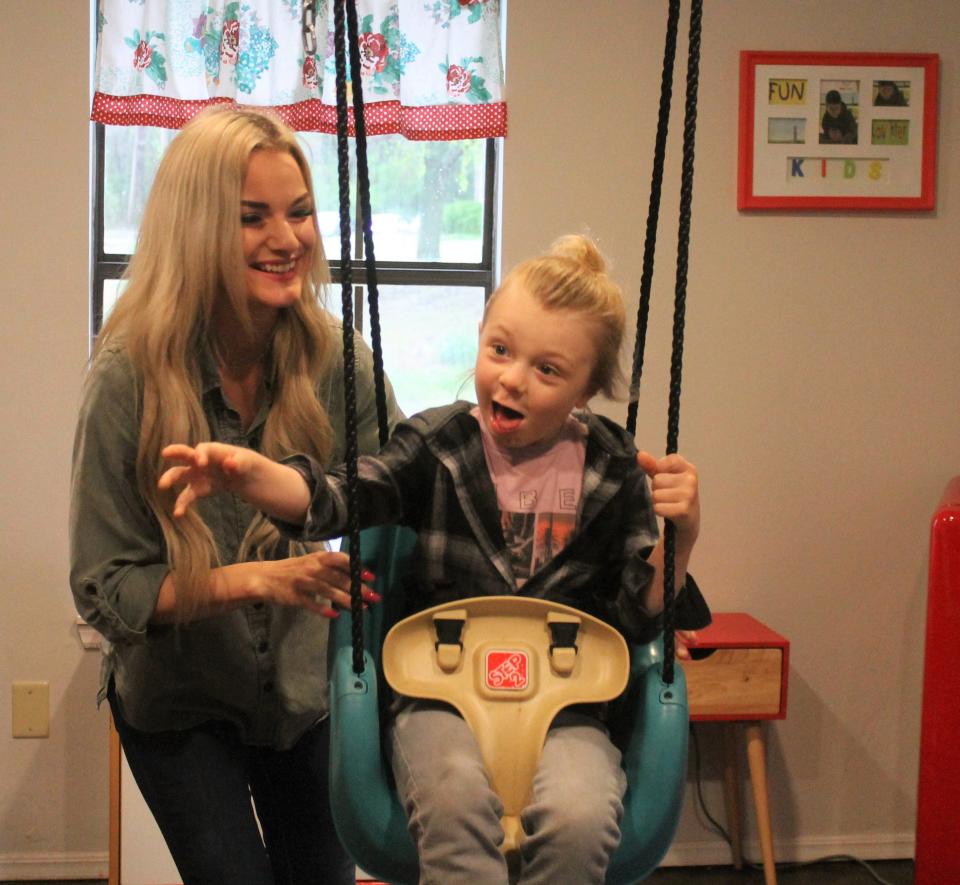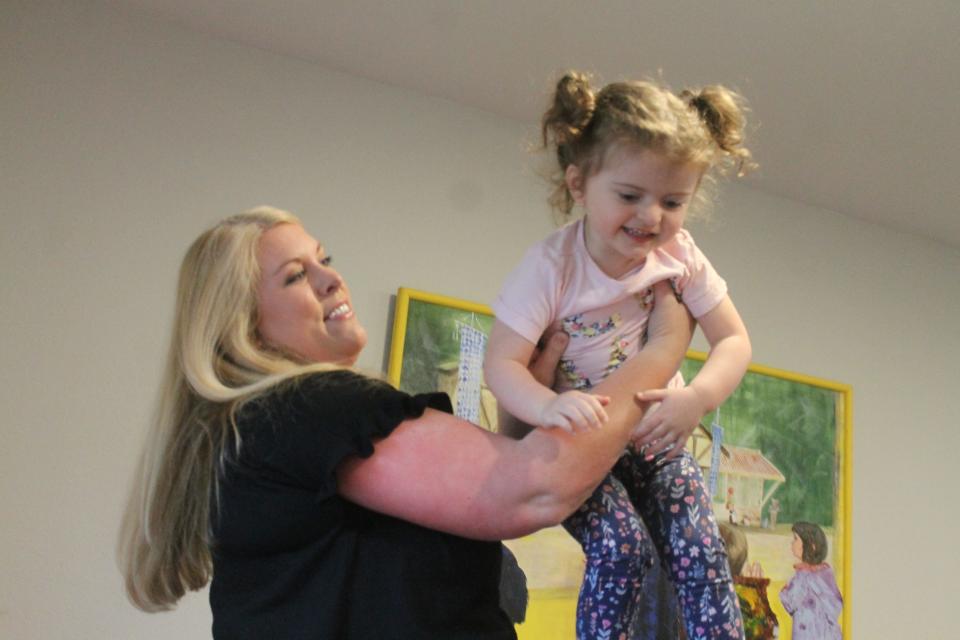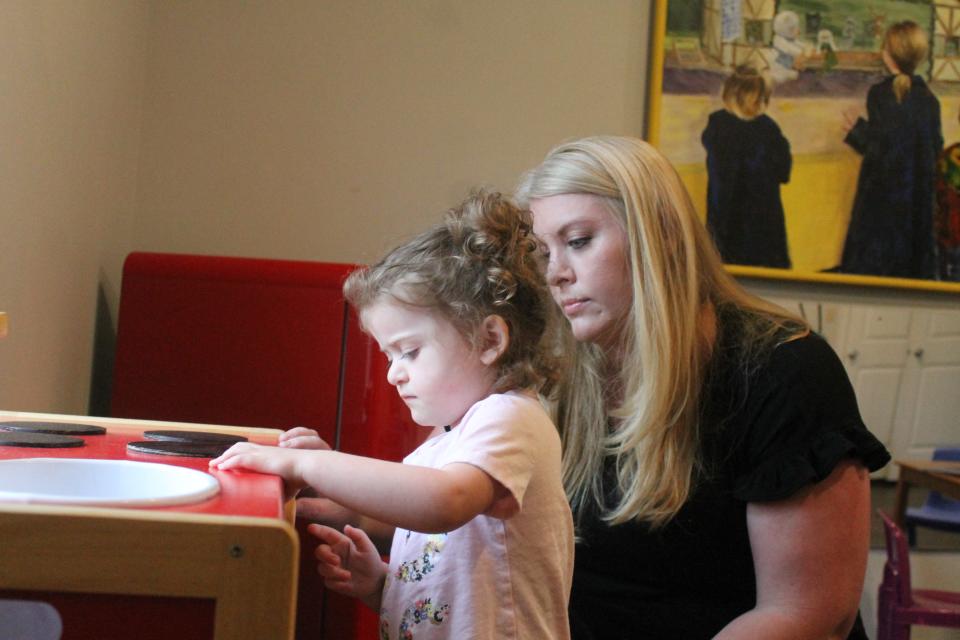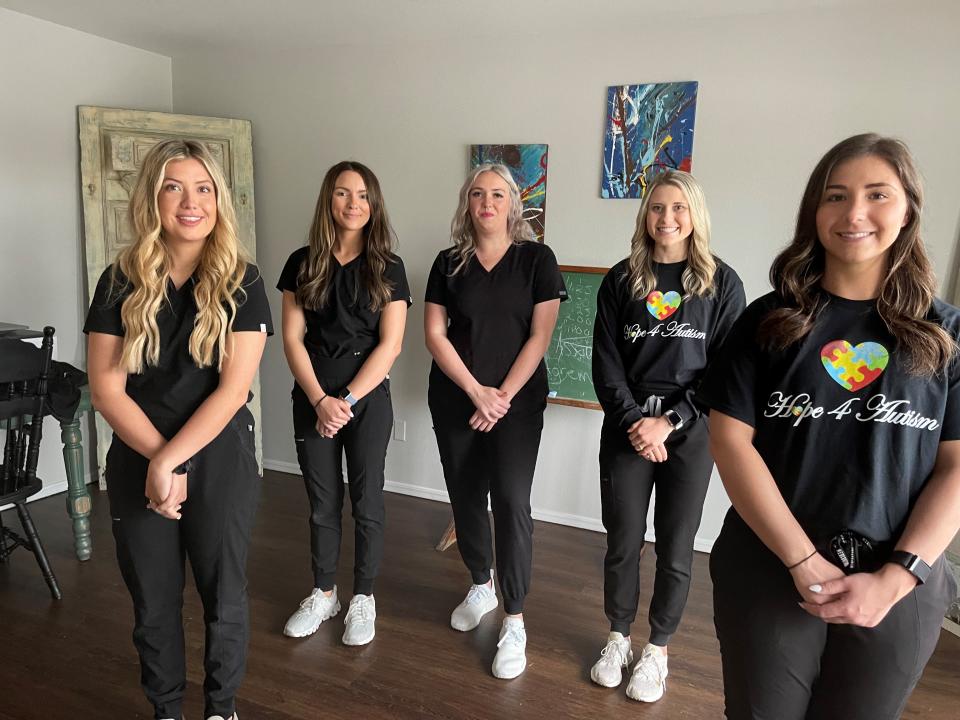There is Hope 4 Autism in Fort Smith
Allison Holloway pushed the swing as high as she could for Titus Bryant, 6, a boy who spends five days a week in autism therapy in Fort Smith.
Holloway knew just when to let the swing go to the delight of Titus.
Holloway is a board certified behavioral analyst for Hope 4 Autism, a Fort Smith-based program expanding in the region. Holloway smiled and laughed when Titus was laughing in the swing.
Titus started therapy three years ago after it was apparent Titus was on the autism spectrum, his mother Tara Kappler said. She said early intervention has helped her son as he grows older.

"Prior to ABA (applied behavioral analysis) therapy we kind of became secluded. For our family, as a whole, it was hard to do much of anything in public without meltdowns or temper tantrums, and it was just kind of us outside of everyone else," Tara Kappler said. "Since having ABA therapy we feel more included in the community and we can go out and about as a family and do normal everyday life type of things, go to birthday parties, grocery shopping, trips, the zoo, so it has changed our life dramatically."
Parent Julie Vineyard and her daughter Sadie, 2, have benefitted from early intervention for autism and from therapy.
"I think it has helped her a lot because she used to not go to other people at all," Julie Vineyard said. "And when she sees her therapists she just walks to them with open arms and is happy and goes in there. It's helped her to relearn some of the skills she had lost."

Sadie is growing up with regressive autism, Julie Vineyard said. She had progressed normally until 16 months, then she stopped talking.
"She doesn't talk. She doesn't wave any more," Julie Vineyard said.

The roots of Hope 4 Autism have taken hold in Fort Smith, and their work is branching out into neighboring areas.
Sheila Barnes, founder and CEO of Hope 4 Autism, is the founding director of the master's degree in applied behavioral analysis program offered at Ouachita Baptist University in Arkadelphia.
In Fort Smith, she opened Hope 4 Autism in 2012. She also has a doctorate in educational psychology.
She taught students a course at the graduate level and worked 16 years with children in Oklahoma City Public Schools.
Her late father U.S. Army Chaplain Dalton Barnes was from Mountain View and her mother Krysteen Barnes was from Alma. Sheila Barnes moved to Fort Smith to be close to her parents while they lived Alma. Then autism insurance coverage was mandated in Arkansas.
"At that time Arkansas had passed an insurance mandate to require insurance companies to cover autism and applied behavioral analysis," Barnes said.
She said she focused on helping children from ages birth to 18 years old. Today she is working with those 5 years old and younger.

Her interest has long been with early childhood special education. She opened the first clinic in Alma in 2012. Then she opened the first one in Fort Smith in 2014. One location was known as "The Farm" on U.S. 71. The main location is at 5604 Ellsworth Road, where she has about 20 students today.
Her main focus is on early intervention for autism with those ages 5 and younger. She also hosts parent training and assessment at a location at 5108 S. U Street.
In the future, there will be more efforts to help adults with autism, especially as the numbers of younger children with autism continues to increase and they age into adulthood, she said.
For the early intervention with children, Allison Holloway said she helps children work on daily living activities such as toilet training.
"We also work on communication skills so teaching kids how to talk and just being able to functionally communicate," Holloway said.
Barnes said she has plans to expand into Oklahoma City soon.
She said it is important for parents to watch for signs early, and not wait years before intervention starts. Some signs can be lack of eye contact, speech or repetitive behaviors, or excessive crying.
"Be aware of the signs of autism, early intervention leads to better outcomes," Barnes said.
She said young children on the autism spectrum may need 20 to 40 hours a week of therapy in clinics and at home before they are enrolled in schools. April is a national autism acceptance and awareness month. Their work continues year round with no known cause or cure for autism and numbers of those affected increasing.
"Early intervention is the key," Barnes said.
This article originally appeared on Fort Smith Times Record: Hope 4 Autism therapy is growing in Fort Smith

